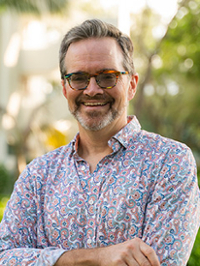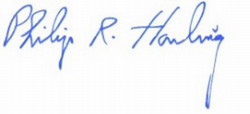
Dear Colleagues and Friends of the Center,
The 2024-25 academic year was an exciting and fulfilling one. As always, we brought in a range of important scholars. Charles Forsdick of Cambridge spoke on “Imagining the Museum of Slavery.” The multimedia artist Virgil Ortiz presented his vision of “The Future of History!”. It was a pleasure to partner with the Lowe Art Museum for Virgil’s appearance, in connection with his exhibition at the Lowe. Marlene Daut of Yale shared her impressions of “Henry Christophe: King in a World of Kings.” Finally, Ada Limón, 24th Poet laureate of the United States, gave a spirited reading of her poetry. Our major even for the Rosenstiel Program in Polish Heritage was a talk by the Honorable Mark Brzezinski, then US Ambassador to Poland, on “US-Poland 2024: A New Era of Security Collaboration on NATO’s Eastern Flank.” In addition to these events, we hosted eight faculty Book Talks, and, as always, they were fascinating and fun. Finally, the 2024-25 Edith Bleich Lecture was given by the CUNY Graduate Center’s Sara McDougall on “Women, Crime, and Community in late Medieval Dijon.”
As always, I owe an enormous debt of gratitude to the Center’s staff, on whom I rely very closely indeed. Our Assistant Director, Christina Larson, provided expert and excellent guidance and support across the full range of our activities, and was and remains a fount of wisdom and good counsel. Last fall, Christina and I welcomed aboard Elizabeth Hernandez, our new Office Manager. Elizabeth came to the Center with much relevant experience in office management and event planning right here in Miami-Dade, and she immediately hit the ground running and never looked back. I’m also grateful to Sydney Shamblin Anderson, our Graduate UGrow Fellow, and to Lyric Johnson, Layla-Bleu Jackson Yanez, Layna Hopper, and Jackson Ori. Our Student Assistants, who assisted us very ably and enthusiastically with all the year’s activities.
It was our pleasure to award the Suzuki/Lindemann/Cruz Award to Bright Petiafo, doctoral candidate in History, to support his archival work in in the Chicago and elsewhere. The 2024 Ruggiero Outstanding Dissertation Award went to Dieyun Song (History), for her dissertation entitled “The Power of Philanthropy: Development, Empire, and Non-State Actors in Cold War Columbia, 1961-1973.” We’re deeply grateful to all of you who generously contributed to these awards, and we look forward to partnering with you in due course to replenish their funding stream.
The Center also hosted a series of well-attended workshops over the course of 2024-25, under our new “User’s Manual” banner – INCLUDING several aimed at grad students on preparing for the academic job market, And book-prospectus seminar with veteran Humanities book editor and author of books on writing Bill Germano (Cooper Union, Routledge, Columbia University Press).
As always, we greatly appreciate the ongoing support of Dean Leonidas Bachas and the leadership of the College of Arts & Sciences, especially Associate Deans Jennifer Ferriss-Hill, Chantel Acevedo, and Josh Cohn. We are grateful to the Provost’s Office for its funding support of the Center. Our Faculty Advisory Board continues to offer crucial guidance.
Thank you ever so much for your robust and ongoing support for the Center, my friends. Knowing we have that support means we also know that the Center will continue to move forward from strength to strength!

Phil Harling, Director, Center for the Humanities
College of Arts & Sciences, University of Miami





